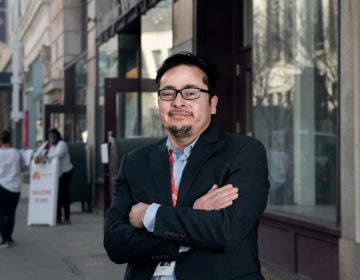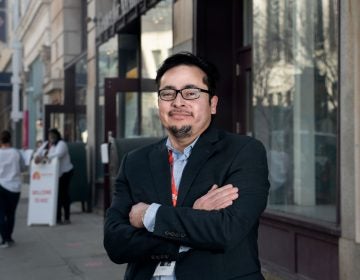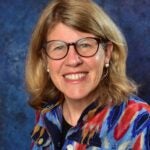This story is part of The 47: Historias along a bus route, a collaboration between WHYY’s PlanPhilly, Emma Restrepo, and Jane M. Von Bergen.
This article is written in a combination of English and Spanish. To read entirely in English, click or tap here o para leer en español, haga clic o toque aquí.
For lawyer Steven Larín, immigration is more than global. It’s personal.
Larín, who practices immigration law at the Nationalities Service Center, sees the sweep of people moving across borders — their journeys in waves powered by the global economy, climate change, and political forces beyond their control, yet sometimes caught in the eddies of bureaucracy and harsh laws.
That’s global. And personal?
Larín thinks about his mother, now deceased, and father, who came to Los Angeles from El Salvador in the 1970s. They brought his older brother, then 2. Larín was born in the United States, the first American citizen in his family of four.
“Mi papá y mi mamá, que ya falleció, trabajaron siempre en fábricas, haciendo trabajos difíciles, horas difíciles, siempre cansados, siempre trabajando, pero se esforzaban por hacer una vida para sus hijos”, dijo.
“Viviendo en casa como hijo de inmigrantes, fui testigo de los obstáculos y sí, siempre pensé que, si tuviera la oportunidad, ayudaría”. Y Larín cumplió.
And so he has. After graduating from Swarthmore College and Loyola Law School at Loyola Marymount College in Los Angeles, Larín stayed in the City of Angels for four years, helping refugees from El Salvador. For the last 15 years, Larín has handled thousands of cases for immigrants here in Philadelphia, working as a lawyer for the Nationalities Service Center on Arch Street, just a few blocks from the Route 47 bus stop. Larín is now deputy director.
The Nationalities Service Center is celebrating its 100th year of service to Philadelphia’s immigrant community, and because of that, the nonprofit social services agency has watched the history of the world unfold in the City of Brotherly Love.
“Hemos trabajado con refugiados de Vietnam después de la guerra; hemos trabajado con refugiados de varios países después de la Segunda Guerra Mundial. Yendo más atrás, vemos todos los grupos que ahora hacen presencia en Filadelfia”, dijo Larín. “That story is critical for all of us to understand now — that all these groups have made the Philadelphia that exists today.
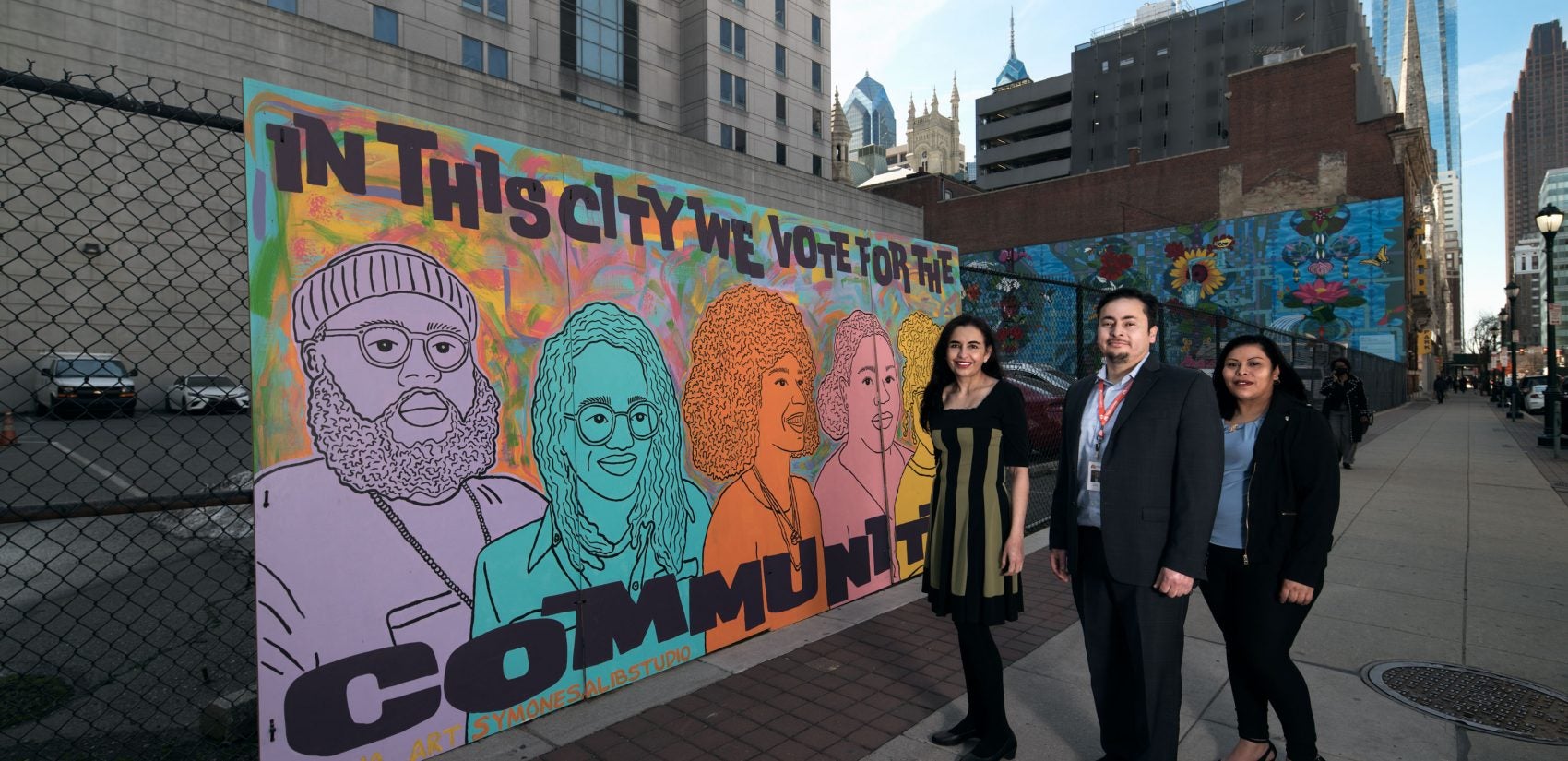
En otras palabras, para Larín el tema es sencillo: “Filadelfia es Filadelfia debido, entre otras, a la contribución de todos los inmigrantes de todo el mundo. En este momento, tal vez la atención se centre en los inmigrantes latinoamericanos, en el futuro, su contribución a Filadelfia será obvia, al igual que los primeros inmigrantes que dejaron sus huellas en la ciudad”.
“The Nationalities Service Center has had the opportunity to see — to participate — in that story for a long time,” Larín said. “We continue to learn from the communities we help, because each community has different needs and opportunities. We are learning and changing our services to give the best possible help.”
The path of immigration is never easy, and Larin saw first-hand how it impacted his family. When he and his older brother went to elementary school, the school treated his brother differently, even though his brother was an infant when he came to the U.S., and for all intents and purposes grew up here.
“La población de las escuelas públicas estaba cambiando y había mucha tensión, muchos problemas”, recuerda Larín. “A las personas de diferentes comunidades, no les gustaba que hubiera tantos inmigrantes latinos”. En casa, su padre hablaba sobre el trato injusto en el trabajo, un tema común entre primos y amigos. “Al mismo tiempo, lo pasamos bien y encontramos felicidad en lo que hacíamos y cuando nos reuníamos”, recordó.
“At the same time, we had a good time and we found happiness in what we did and when we got together,” Larín said, noting a large extended family that had moved to the U.S. as well.
Immigration issues change with the laws and the times. “I think a lot about the … migratory history of the Salvadoran people,” Larín said. In the 1980s, many were fleeing the war in El Salvador. They came to the U.S., seeking asylum, he said, and the majority were denied. Meanwhile, immigrants from Nicaragua were being treated differently, because of the U.S. opposition to the left-leaning Nicaraguan government.
“Pero el pueblo salvadoreño era un pueblo organizado, que se metió en política, se organizó y luchó para cambiar esa situación”, dijo.
There was a lawsuit, which they won, that forced the government to give Salvadorans and others a second chance at asylum. A law, the Nicaraguan Adjustment and Central American Relief Act, passed in 1997, also helped some Salvadorans and Guatemalans to obtain residency.
“Cuando comencé como abogado, estaba trabajando con esa comunidad con esa ley”, dijo. Más de 300 personas al día acudían a su organización sin ánimo de lucro, en Los Ángeles, para registrarse y obtener la residencia.
“It is interesting to me now because again in the news, they speak a lot about Central America — El Salvador, Honduras, and Guatemala. And history is connected, of course, because those who are fleeing are fleeing from situations that [have] been created by all that history in El Salvador, but also by the immigration laws of the United States.”
Larín explained that some people who were deported because of those laws had grown up in the U.S. When they were returned to their former countries, they carried back cultural practices they had learned here. Some practices were positive, but others, such as gang culture and violence, were not. As gang culture took hold, it created violent conditions that led people to seek refuge in the U.S. “People are fleeing from gang violence in Central America, but the gangs they are fleeing from were created in the U.S.,” he said.
“The gangs, for example, all that history, everything is connected, so it is very interesting for me to work with young people who come from Central America. They have been fleeing from that, sometimes from poverty, but also the violence,” he said, adding that more young people are coming to the U.S. and seeking asylum.
When Larín looks at immigration from an even broader vantage point, the movement of people is not unlike the movement of money. Around the world, companies and capital and investment circle the globe searching to find the right atmosphere to manufacture products or grow profits.
People, he said, do the same — moving from place to place and country to country to thrive.
And because those people are looking to thrive, they do.
“La gente tiene derecho a trabajar y si el trabajo ya no existe en un lugar, o si hay desastres naturales, o violencia, la gente va a buscar donde tenga la oportunidad de aportar y prosperar, ¿verdad? Todos los estudios han demostrado que los inmigrantes vienen y crean nuevos negocios más que las personas nacidas aquí”, agregó. “Cuando la gente tiene trabajo, compra cosas, compra casa, contribuyen”, dijo, señalando que muchos inmigrantes en Filadelfia han estado aquí por más de una década. “Ya son parte de nuestra comunidad; no son extraños, son personas que ya están aquí. Ellos van a la escuela con nuestros hijos; trabajan con nosotros en nuestros trabajos; van a la iglesia. Ya son parte de nuestra comunidad”.
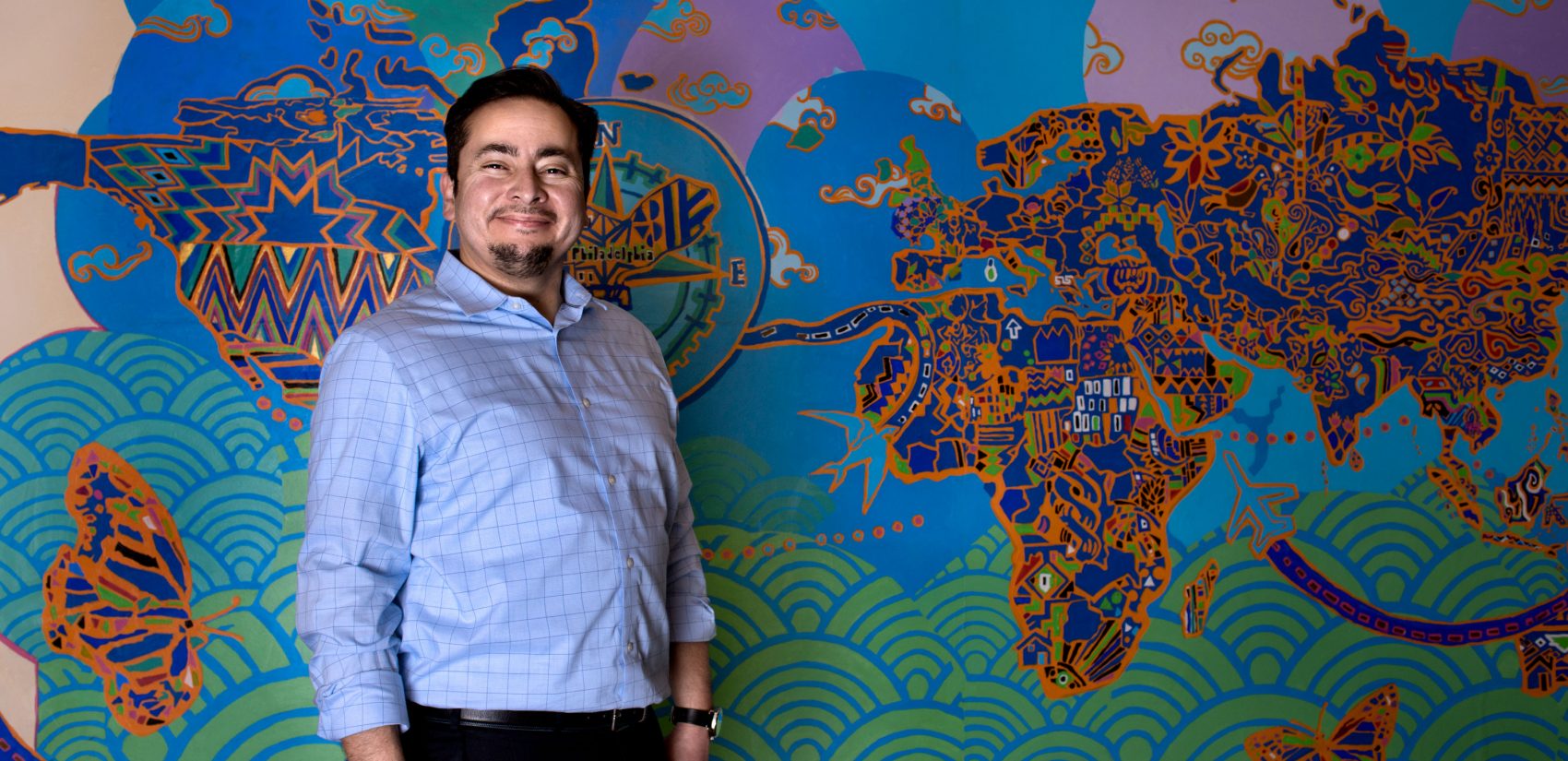
Larín is heartened by the potential for changes in immigration policies under President Joe Biden.
“Las leyes de inmigración deben respetar el derecho de cada persona a trabajar y debe brindarles a las personas la oportunidad de mantener a sus familias y a sí mismos, lo que a la vez contribuye a la prosperidad económica de todos los ciudadanos”, opina Larín. “Yo agregaría [que] la ley de inmigración de los EE. UU. también debe centrarse en mantener unidas a las familias y brindar refugio a quienes huyen de persecución”.
Larín is also encouraged by Biden’s announcement that there will be more assistance for Latin American countries and organizations within them “that help, that work against violence, that work against corruption. The United States, as it has had a part in [what] impacts Latin American countries, does have the responsibility to think about how it can help and how it can give opportunity to the Latin American people who are here.”
At the Nationalities Service Center, Larín works with immigrants from all over. Over the years, immigrants from Africa have been the fastest-growing group, but Latinos and Asians are the largest groups. Lately, most of the Latino immigrants are from Mexico, Guatemala, Honduras, and El Salvador, he said. In Pennsylvania, Asians and Latin American immigrants are the largest groups, particularly immigrants from China and India.
“Last year we helped people from more than 110 countries around the world,” he said.
Looking back on the Nationalities Service Center’s 100-year history, “cuando hay problemas, cuando hay guerras, cuando hay un ambiente de corrupción, cuando hay migración, para los inmigrantes que vienen a Filadelfia, NSC siempre ha abierto las puertas para dar asistencia, para ayudar, pero también para decirle a la gente que son bienvenidos”.
Larín is talking about something more than assisting immigrants out of some sense of charity toward “the huddled masses yearning to breathe free,” as the poem on the Statue of Liberty says. Instead, just as Philadelphia works to bring businesses here for economic growth, the city should work equally hard to attract immigrants for what they can contribute to Philadelphia’s cultural and economic vitality.
“Debemos querer a los inmigrantes y darles la bienvenida. Filadelfia ha estado perdiendo población en los últimos años y con el aumento de la inmigración, la región está cambiando”, dijo.
“Immigrants arrive in the city to work and be reunited with family, and by doing so, they are helping to rebuild and strengthen our communities.”

Subscribe to PlanPhilly
WHYY is your source for fact-based, in-depth journalism and information. As a nonprofit organization, we rely on financial support from readers like you. Please give today.







